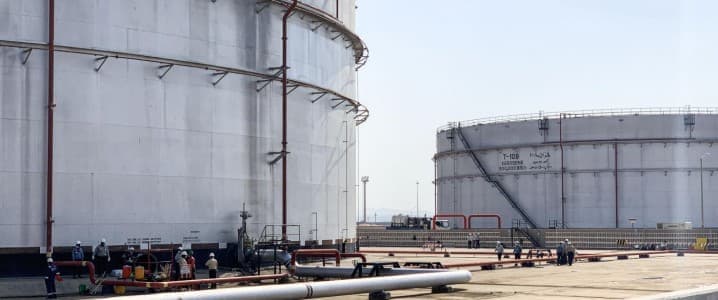China’s Oil Sale Is A Clear Message To OPEC+

China made headlines last week with the news that it was going to release some crude oil from its strategic petroleum reserve and sell it in a move that Bloomberg called "an unprecedented intervention."
Indeed, this was the first time China announced the sale of oil from its strategic reserve. The size of this reserve is unknown as the government never releases that data, but analysts have been using satellite imaging to estimate just how much oil China has in storage.
The reason for the move was, of course, oil prices. At over $70 per barrel, crude appears to have become too expensive for Beijing after producer price inflation hit a 13-year high last month, per a Reuters report. The same report cited China's National Food and Strategic Reserves administration as saying the oil sales would "better stabilise domestic market supply and demand, and effectively guarantee the country's energy security."
The world's biggest economic hothouse, which has so far this year grown at a rate of 8.44 percent, has been struggling with high raw material prices for months, just like the rest of the world. Unlike the rest of the world, it has levers to pull when it decides it has had enough.
What is interesting is that this may not be the first time China has sold oil from its strategic reserve. Yet it is the first time it has made it public, Energy Aspects' Amrita Sen told the Financial Times.
"This is not new, but the announcement is new and I think it's an attempt on their part to temper domestic prices," Sen explained.
The other interesting thing, as noted in the Financial Times report on the news, is that the first-of-its-kind announcement came soon after the latest meeting of OPEC+ where the cartel decided to keep adding production at rates agreed earlier despite calls - including from U.S. President Joe Biden - to add more supply to market to temper the price rise. As Reuters columnist Clyde Russell put it, the oil sale was all about the message, not so much the oil itself.
Since the pandemic, the world's top importers of crude oil appear to have become increasingly sensitive to oil price swings, especially when the swing is upwards. India's former oil minister, Dharmendra Pradhan, was especially prompt and vocal in his reactions to any OPEC move that aimed at boosting prices any higher than New Delhi was comfortable with.
India responded to some of these moves by ordering its state refiners to curb purchases from Middle Eastern oil producers. China has been diversifying its suppliers, too. Now India is selling oil from its strategic reserve. In fact, it announced its sale a few weeks before China. The purpose of the sale reported at the time was to lease space to refiners, but whether intentional or not, the sale would have an effect on prices.
"The Chinese government has been extremely anxious about inflation [so] they are doing this across the board. They've been releasing strategic stocks of pretty much every raw material," Energy Aspects' Sen said, as quoted by the FT.
Inflation has become a cause for anxiety - not just in China - yet few countries have the reserves to release to mitigate the effects of rising prices. Yet, it is impossible to not interpret the release of the barrels from the strategic reserve as a warning to OPEC+.
Rising oil prices have been one of the biggest drivers of inflation, yet OPEC+ has kept to its original plan to add no more than 400,000 bpd to its combined output until it returns to the pre-pandemic level. Meanwhile, according to OPEC's latest monthly report, demand is set to exceed pre-pandemic levels as soon as next year.
With OPEC+ so unresponsive to calls for more output, prices have higher to go if this forecast pans out. And this could lead to an even more complicated inflationary situation for large importers because strategic reserves, as abundant as they may be, are still finite.




